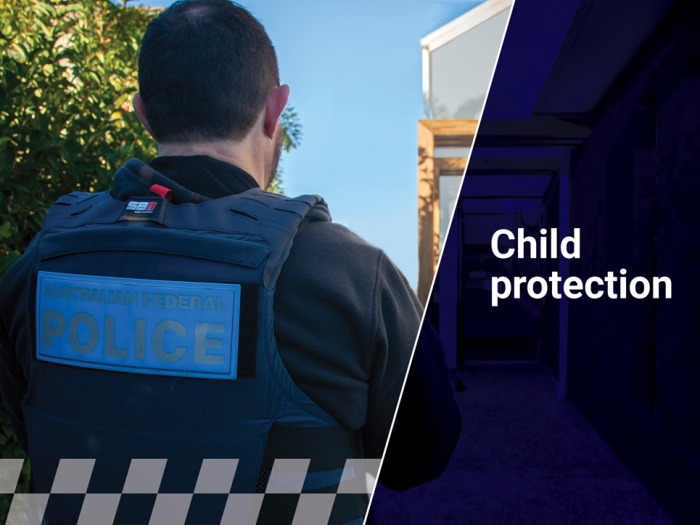Virtual Global Taskforce converges on Brisbane to protect children online
For the first time since 2009, the AFP will take over as chair of the Virtual Global Taskforce (VGT), an international alliance of 15 dedicated law enforcement agencies working together to tackle the global threat of child sexual abuse.
From November, the AFP, through the AFP-led Australian Centre to Counter Child Exploitation (ACCCE) will take over as chair of the global taskforce for the next three years.
The VGT Board of Management met this week at the AFP-led ACCCE in Brisbane, the first meeting in Australia since 2019.
The AFP, who is a founding member of the VGT, hosted the meeting, in recognition of the need to address the rising scourge of online child sexual exploitation through international collaboration.
Discussions at the meeting highlighted the rise of financial sextortion targeting children, the looming impact of AI-generated child abuse material as well as education and prevention strategies.
AFP Commander Helen Schneider said that online child sexual abuse was a global problem which required an international and united response from law enforcement.
“Online child abuse is an issue which is growing in scale and complexity as technology advances,” Commander Schneider said.
“Taking over as chair of the Virtual Global Taskforce shows that the AFP is a world leader in the fight to protect children online.”
Law enforcement partners who attended the meeting in Brisbane this week included representatives from Canada, United States, Colombia, New Zealand, Kenya, Philippines, United Arab Emirates, Korea, the Netherlands, the eSafety Commissioner and non-government organisations such as the International Justice Mission, Neighbourhood Watch Australasia and the Daniel Morcombe Foundation.
NCA Deputy Director and Co-Chair VGT, Wendy Hart said 2024 was a milestone year for the global taskforce, as it marked 20 years since the VGT first met in Belfast in 2004.
“It’s timely to reflect to on the last 20 years and see how our lives have changed with online technology and with social media,” Ms Hart said.
“The landscape of tech changes are so broad that it is going to be a team effort to keep across them in future.”
The AFP and its partners are committed to stopping child exploitation and abuse and the ACCCE is driving a collaborative national approach to combatting child abuse.
The ACCCE brings together specialist expertise and skills in a central hub, supporting investigations into online child sexual exploitation and developing prevention strategies focused on creating a safer online environment.
Members of the public who have information about people involved in child abuse are urged to contact the ACCCE. If you know abuse is happening right now or a child is at risk, call police immediately on 000.
If you or someone you know is impacted by child sexual abuse and online exploitation, support services are available.
Research conducted by the ACCCE in 2020 revealed only about half of parents talked to their children about online safety. Advice and support for parents and carers about how they can help protect children online can be found on the ThinkUKnow website, an AFP-led education program designed to prevent online child sexual exploitation.
For more information on the role of the ACCCE, what is online child sexual exploitation and how to report it visit the ACCCE website.
Note to media
Use of term 'CHILD ABUSE' MATERIAL not ‘CHILD PORNOGRAPHY’
The correct legal term is Child Abuse Material – the move to this wording was among amendments to Commonwealth legislation in 2019 to more accurately reflect the gravity of the crimes and the harm inflicted on victims.
Use of the phrase ‘child pornography’ is inaccurate and benefits child sex abusers because it:
- indicates legitimacy and compliance on the part of the victim and therefore legality on the part of the abuser; and
- conjures images of children posing in 'provocative' positions, rather than suffering horrific abuse.
Every photograph or video captures an actual situation where a child has been abused.




